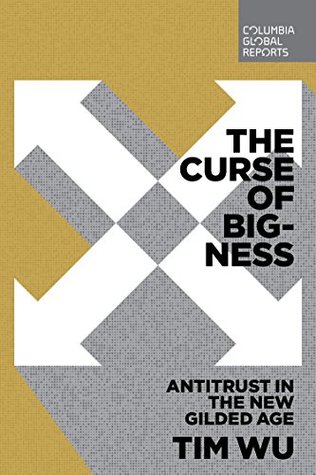More on this book
Community
Kindle Notes & Highlights
The doctrine of laissez-faire, a cousin to Social Darwinism, suggested that economic problems would tend to work themselves out, and hence government intervention would usually do more harm than good. Its American translation was, “Let well enough alone!” That was the faith, and as such it took on Constitutional dimensions. For it dictated that not even Congress or elected representatives were to “interfere” with the economy; the economy had its own sovereignty.
To Roosevelt, economic policy did not form an exception to popular rule, and he viewed the seizure of economic policy by Wall Street and trust management as a serious corruption of the democratic system. He also understood, as we should today, that ignoring economic misery and refusing to give the public what they wanted would drive a demand for more extreme solutions, like Marxist or anarchist revolution.
In a representative democracy, lawmaking is supposed to roughly match what the majority wants. If that is unclear or disputed, then we might expect or hope they’d reflect the interests of the “swing” voter—that is, the middle-of-the-road man or woman. But research shows that, for the vast majority of policy matters, that isn’t how things work at all. It was a scholar named Mancur Olson at Harvard who, in the 1960s, upended the understanding of political influence by pointing out that, in fact, large majorities don’t get what they want on many issues. Instead, they consistently lose out to
...more
The big tech firms are a little more circumspect than Thiel. For Facebook, it is not trying to build a global empire of influence so much as “bringing the world closer together.” It is supposedly a “different kind of company that connects billions of people.” To do that right, however, requires a global monopoly. Meanwhile, Google wants to organize the world’s information, but to do so they need to get their hands on all the information in the world. Amazon, meanwhile, wants nothing more than to serve the consumer, which is great, and you can check out any time you like, but you can never
...more
There is an unfortunate tendency within enforcement agencies to portray breakups and dissolutions as off the table or only for extremely rare cases. There is no legal reason for that presumption: Indeed, the original practice favored dissolution as the default remedy—implied in the very word “antitrust.”
Consider a breakup of Facebook that undid the mergers with Instagram and WhatsApp. While Facebook might not like being dissolved, and might find the new competition unwelcome, it is hard to see what the great social cost, if any, would be.


